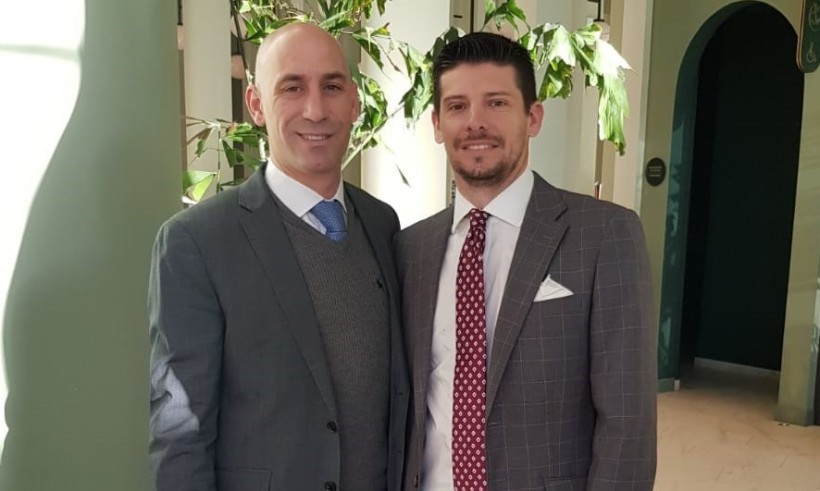When the Royal Spanish Football Federation announced this week that it was adopting a blockchain-based ticket distribution system, it brought in a tech company that is partly based in Halifax.
The federation – whose official name is the Real Federación Española de Fútbol, or RFEF – said this week it had partnered with technology company Nodalblock to develop a ticketing system based on blockchain, the technology that underpins cryptocurrencies.
While Nodalblock was founded in Madrid and still has 15 employees in the Spanish capital, it received investment last year from Halifax-based Numus Financial, which assembled an executive team in Halifax, including CEO Daniel Faria. The company has a range of products including digital identity, document verification and ticket distribution, and now it is helping the governing body of Spanish soccer protect and verify the tickets to its games.
“I would argue this is one of the most interesting blockchain announcements so far in terms of actual application,” Brenan Isabelle, Nodalblock’s Halifax-based Sales Director, said in an interview.
The story of the Halifax involvement in Nodalblock began when Numus Financial, the investment company headed by serial entrepreneur Wade Dawe, began searching the world for blockchain-based startups.
Blockchain is a series of digital ledgers that various parties can access to exchange digital money or use to perform other tasks. The chain keeps a permanent record of who entered and what they did, guaranteeing a high level of security. Numus found that Nodalblock was a blockchain company that actually had sales and therefore led an investment round for the Spanish company and therefore the Halifax investment firm. Numus did not reveal the size of the investment.
CarbonCure, MTI Named to Global Cleantech 100.
Though Dawe and Numus are most active in the resource sector, they have backed several innovative companies, such as: drug discovery company Immunovaccine Technologies; construction software company Harbr; and Bereda Training, which is making a collaborative tool for endurance athletes.
To head Nodalblock, they brought in Faria, an MIT-trained native of Portugal, who has been involved in a few recent ventures in Nova Scotia. He was first recruited to the province by Jim DeLeskie, CEO of Sydney-based Mimir Networks and has been based in Halifax for a few years.
Now he has worked with Nodalblock to provide a state-of-the-art solution for a problem encountered by many sports and entertainment organizations. The problem of ticket fraud and price-gouging is becoming more and more prevalent. Nodalblock will use blockchain to ensure the football federation can track who owns tickets to games and ensure that only people who have bought digital tickets from accredited sellers can enter the games.
“Technology supplied by Nodalblock will enable the RFEF to digitize traditional tickets as interactive assets on a blockchain, making each ticket fully traceable during its lifecycle,” said the RFEF in a statement. “This system will integrate with the official and authorized sales channels of the RFEF without any special requirements for fans, who will now be able to use their smartphones to manage tickets and enter events by scanning a unique code at the gate.”










